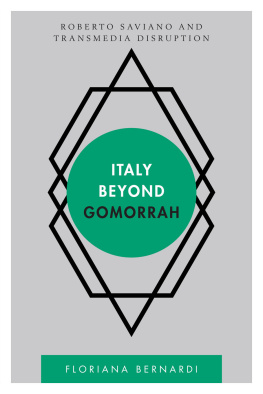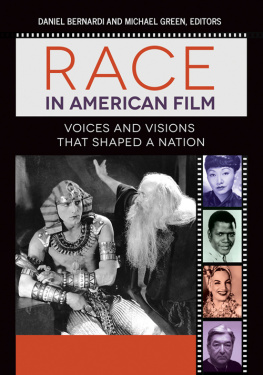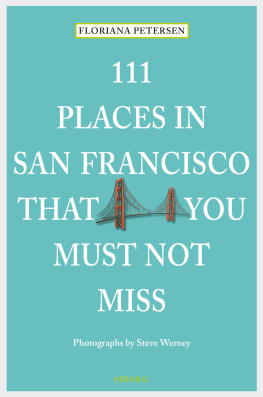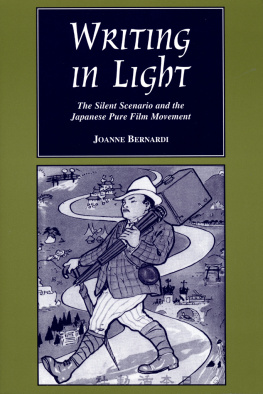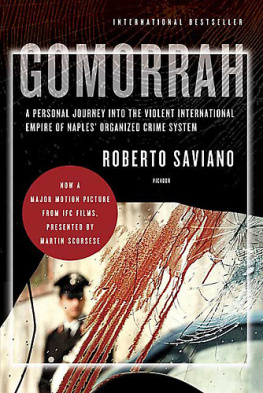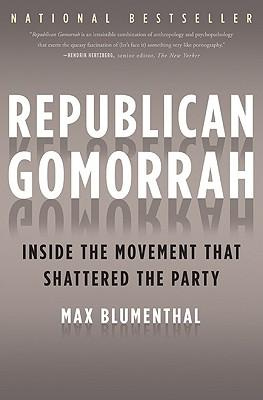Italy beyond Gomorrah
Disruptions
Disruptions is a series that interrogates and analyses disruptions within and across such fields and disciplines as culture and society, media and technology, literature and philosophy, aesthetics and politics.
Series editor:
Paul Bowman, Reader, Cardiff School of Journalism, Media and Cultural Studies, Cardiff University, UK
Editorial Review Board:
Benjamin Arditi, Professor of Politics, National University of Mexico, Mexico
Rey Chow, Anne Firor Scott Professor of Literature, Duke University, USA
Simon Critchley, Hans Jonas Professor of Philosophy, The New School, New York, USA
Catherine Driscoll, Associate Professor of Gender and Cultural Studies, The University of Sydney, Australia
Ben Highmore, Professor of Cultural Studies, University of Sussex, UK
Richard Stamp, Senior Lecturer of English and Cultural Studies, Bath Spa University, UK
Jeremy Valentine, Reader in Media, Culture and Politics, Queen Margaret University, Edinburgh, UK
Bearing Society in Mind: Theories and Politics of the Social Formation, Samuel A. Chambers
Open Education: A Study in Disruption, Pauline van Mourik Broekman, Gary Hall, Ted Byfield, Shaun Hides and Simon Worthington
What Lies Between: Void Aesthetics and Postwar Politics, Matt Tierney
Martial Arts Studies, Paul Bowman
Living Screens: Reading Melodrama in Contemporary Film and Television, Monique Rooney
Word: Beyond Language, Beyond Image, Mariam Motamedi Fraser
Culture and Eurocentrism, Qadri M. Ismail
Against Value in the Arts and Education, edited by Sam Ladkin, Robert McKay and Emile Bojesen
Imprints of Revolution: Visual Representations of Resistance, Guadalupe Garca and Lisa B. Y. Calvente
Disrupting Maize: Food, Biotechnology and Nationalism in Contemporary Mexico, Gabriela Mndez Cota
Transitioning: Matter, Gender, Thought, E. J. Gonzalez-Polledo
Italy beyond Gomorrah: Roberto Saviano and Transmedia Disruption, Floriana Bernardi
Italy beyond Gomorrah
Roberto Saviano and Transmedia Disruption
Floriana Bernardi

London New York
Published by Rowman & Littlefield International Ltd
Unit A, Whitacre Mews, 2634 Stannary Street, London SE11 4AB
www.rowmaninternational.com
Rowman & Littlefield International Ltd. is an affiliate of Rowman & Littlefield
4501 Forbes Boulevard, Suite 200, Lanham, Maryland 20706, USA
With additional offices in Boulder, New York, Toronto (Canada), and Plymouth (UK)
www.rowman.com
Copyright 2017 by Floriana Bernardi
All rights reserved. No part of this book may be reproduced in any form or by any electronic or mechanical means, including information storage and retrieval systems, without written permission from the publisher, except by a reviewer who may quote passages in a review.
British Library Cataloguing in Publication Data
A catalogue record for this book is available from the British Library
ISBN: HB 978-1-78660-017-2
PB 978-1-78660-018-9
Library of Congress Cataloging-in-Publication Data Available
ISBN: 978-1-78660-017-2 (cloth : alk. paper)
ISBN: 978-1-78660-018-9 (pbk. : alk. paper)
ISBN: 978-1-78660-019-6 (electronic)

The paper used in this publication meets the minimum requirements of American National Standard for Information Sciences Permanence of Paper for Printed Library Materials, ANSI/NISO Z39.481992.
Printed in the United States of America
Contents
Acknowledgements
First and foremost, my utmost gratitude for the opportunity to publish this book goes to Paul Bowman, the Disruption Series Editor at Rowman & Littlefield International, who considered my work worthy to be addressed to an international audience. For me, he has always been an example of extreme professionalism and cordiality, encouraging my projects with respect and enthusiasm. I really owe a lot to him, including the possibility to collaborate with the School of Journalism, Media and Cultural Studies at Cardiff University (UK) as a visiting researcher associate in year 2015/2016. Of course, this publication would not have been possible were it not for the other people who showed appreciation for this editorial project and worked variously on this book: the editorial assistants, Martina OSullivan first and Michael Watson later, the advisory board members and the anonymous and non-anonymous readers who reviewed the book proposal and the finished volume. Each of them gave me precious advice and confidence. I would also like to express my deepest gratitude to Patrizia Calefato, who guided and supported early research for this work during my PhD years at the University of Bari Aldo Moro (Italy), and to all the colleagues and friends who shared ideas, impressions, suggestions and still-unpublished documents with me. Particularly, I owe my thanks to Roberto Derobertis, Alessandro Pecoraro, Chiara Faggiolani, Valeria Castelli, and to the organizers and participants to the challenging conferences and seminars where some of the issues discussed in this book were first presented: the Transforming Audiences Conference 2 at London Westminster University (UK) in September 2009, the Italian Cultural Studies Conference at Dartmouth College (USA) in May 2010 and the seminars on the sixty years of Rai Television at the University of Bari (Italy) in December 2014. Furthermore, a special note of thanks also goes to Roberto Saviano for inspiring this research with his great civil passion, although I cannot hide a certain amount of disappointment for having left unaccomplished the agreed project of an interview for this book.
Finally, this book is dedicated to my family, mum and dad, my beloved Nick and our soon-to-be-born baby Alberto.
ONE
Introduction
Italy beyond Gomorrah
POSITIONINGS #1: THE OBSERVER
Edgar Morin maintained that whatever the phenomenon approached by a scholar is, it is also necessary that the scholar himself or herself becomes the object of study, since his or her figure could disturb the study object or, to some extent, he or she could project himself or herself in it. According to Morin, whatever research one starts in the field of humanities, the first steps to accomplish are self-analysis and self-criticism (Morin 1962: 16). Accordingly, I would like to start this book clarifying my positioning towards the subject-object of study: Roberto Saviano as a public persona and the media, cultural and political phenomenon engendered by the publication of his non-fiction novel Gomorra. Viaggio nellimpero economico e nel sogno di dominio della camorra in 2006 (hence referred to as Gomorrah, if not differently specified).
When Gomorrah came out, I read it in one breath, as I was fascinated by its pressing, passionate and outraged writing style, a writing of resistance and vision alike. This reading was an event (Bowman 2011: 116); it definitely marked a transformative moment in my perception of reality, both of the reality immediately next to me and of the much more distant reality, yet rooted in the same flows of criminal ideology and money. After my encounter with



 The paper used in this publication meets the minimum requirements of American National Standard for Information Sciences Permanence of Paper for Printed Library Materials, ANSI/NISO Z39.481992.
The paper used in this publication meets the minimum requirements of American National Standard for Information Sciences Permanence of Paper for Printed Library Materials, ANSI/NISO Z39.481992.
